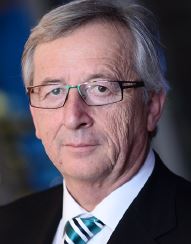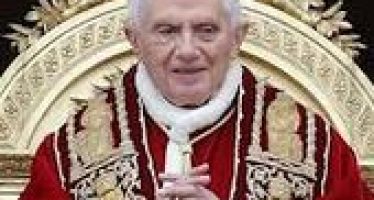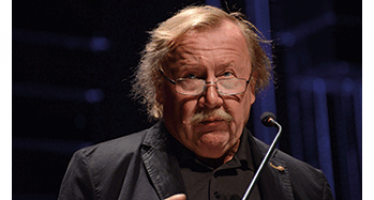Jean-Claude Juncker
 Dismissed and ridiculed as a failed small-town administrator with a penchant for fine wines and cognacs, European Commission President Jean-Claude Juncker represents to some all that is wrong with the European Union: a faceless apparatchik given to bullying people and countries in the name of an ideal not sanctioned by the popular vote.
Dismissed and ridiculed as a failed small-town administrator with a penchant for fine wines and cognacs, European Commission President Jean-Claude Juncker represents to some all that is wrong with the European Union: a faceless apparatchik given to bullying people and countries in the name of an ideal not sanctioned by the popular vote.
Laying bare his federalist vision for the post-Brexit era in his annual state of the union speech, Mr Juncker painted a detailed picture of a tightly integrated EU with a vastly expanded Eurozone and a reinvigorated Schengen travel free area. He called upon member states to seize the moment and broaden the reach of the European Union, ignoring nay-sayers. Mr Juncker also insisted Poland, Sweden, Hungary, and other holdouts join the Eurozone before 2025 as they are required to do under the terms of their EU accession.
Whilst the European Commission does not set policy, its president is required to present a coherent vision for the bloc. Besieged by grave problems for years on end – low economic growth, the arrival of immigrants by the millions, failing states, rising nationalism, and trouble along its eastern periphery – the EU seems to have shrugged off these troubling issues.
The union, Mr Juncker argues, has found its groove and is moving along nicely, outpacing the US for economic growth and producing massive surpluses on its trade balance and the wider current account. In fact, only two of its 28 members states – Poland and the UK – remain addicted to running outsized c/a deficits.
Dutch Prime Minister Mark Rutte, weary of handing additional powers to Brussels, called Mr Juncker “a romantic” and good-humouredly advised him to consult a medical professional for his visions. Mr Juncker’s bold integralist proposals speech received a lukewarm welcome in most European capitals and caused almost universal surprise: the EC president has a formidable reputation for reading the political moment and changing tack accordingly.
Most disconcertingly, Mr Juncker suggested scrapping national vetoes on matters relating to foreign policy, taxation, and social policy. He also hinted at an institutional change, combining the presidencies of the council and commission into a single directly elected public office. Danish prime minister Lars Rasmussen immediately came out swinging, wiping the idea off the table. Former Italian prime minister Mario Monti was more charmed and praised Mr Juncker for steering the commission back to its original role as an engine of integration rather than an engine for dousing out assorted fires.
Something of a polyglot, Mr Juncker usually delivers his speeches switching between German, French, and English, sparing his audience a taste of his native Luxembourgish. He served eighteen years as prime minister of Luxemburg, becoming one of Europe’s longest-lasting heads of government in the process. Mr Juncker is known for speaking his mind and not always observing political niceties. It has earned him more than his fair share of enemies.
Unfolding his vision for a closely integrated Europe, Mr Juncker is enough of a realist to know that the EU moves slowly – torn as it is between opposites. His speech did, however, put the unfortunate plan for a multi-speed union to rest: the EU moves slowly together or it moves not at all. Accustomed to criticism for running ahead of the pack, Mr Juncker has grown a thick skin: though periodically hitting back at the eurosceptics, he usually prefers to ignore his detractors and press on cajoling rebels back in line and charming doubters to his side. Jovial and easy-going, the Luxembourger is an ardent believer in the European project – though perhaps not its most effective advocate.
You may have an interest in also reading…
Pope Benedict’s Heroic Decision
Pope Emeritus Benedict, elected by the cardinals in 2005, resigned his office effective February 28th 2013. And as you will
Peter Sloterdijk: Shaping a Multipolar National Debate
A prolific writer, publishing some sixty books over a career spanning four decades, German philosopher Peter Sloterdijk recently celebrated his
Dianne Feinstein: Keeping the Eavesdroppers in Check
Even a US senator can face an uphill battle. Such it is with Dianne Feinstein, vice-chair of the Senate Intelligence
















































































